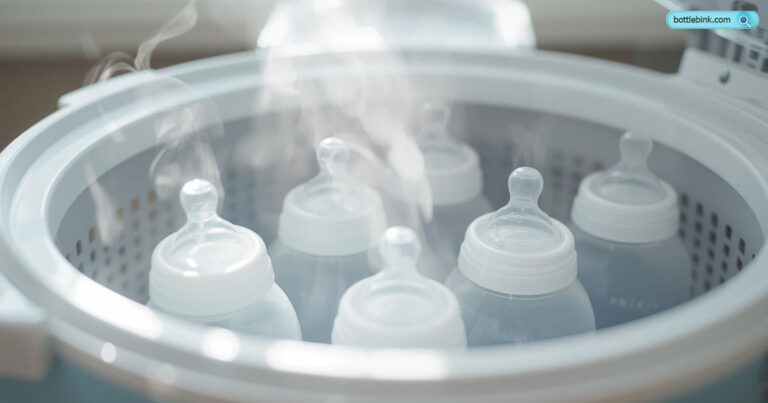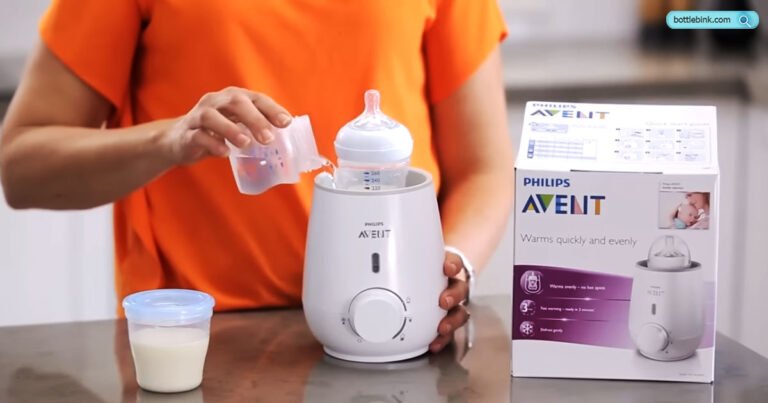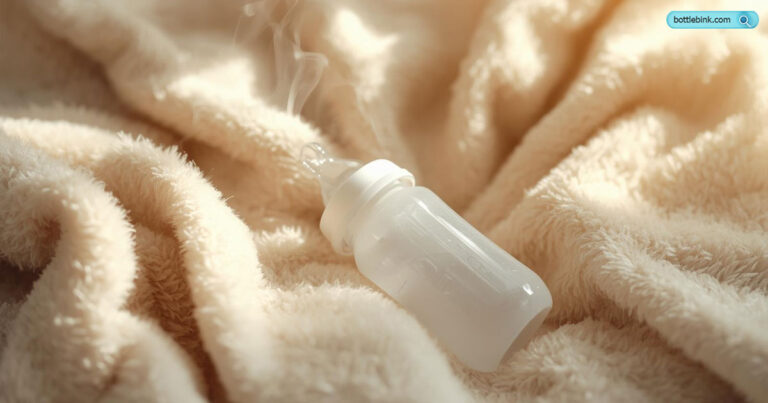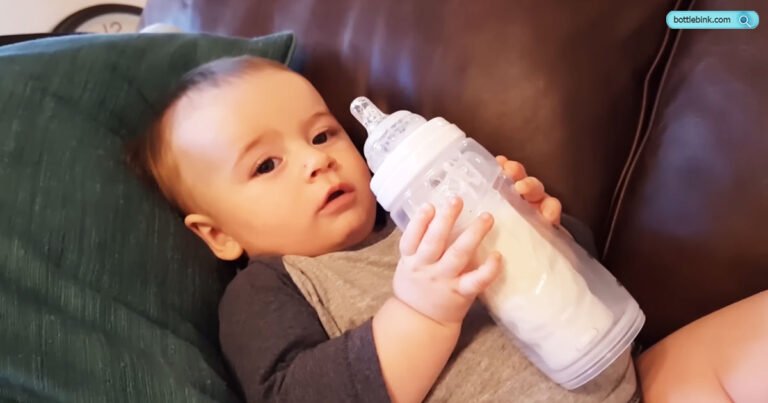How Many Bottles Does a Baby Need a Day? Essential Guide
Are you wondering how many bottles your baby needs each day? It’s a question every new parent asks.
Getting this right can make feeding time smoother and keep your little one happy and healthy. But the answer isn’t the same for every baby. Your baby’s age, appetite, and growth all play a role. Keep reading to discover simple, clear guidance that will help you feel confident about your baby’s feeding routine.
You’ll learn exactly what to look for and how to adjust as your baby grows. Let’s make feeding easier for both of you.
Daily Feeding Frequency
Daily feeding frequency is key to understanding how many bottles a baby needs each day. Babies grow fast, and their feeding needs change quickly. Knowing how often to feed helps ensure your baby stays healthy and happy.
Babies do not follow a strict schedule. They eat based on hunger cues. Watching your baby’s signals is important for feeding times.
Newborn Feeding Patterns
Newborns eat often, usually every 2 to 3 hours. That means about 8 to 12 feedings a day. Their small stomachs need frequent, small meals to grow well. Each feeding may last about 20 to 30 minutes.
At this stage, babies drink about 2 to 3 ounces per feeding. It can vary depending on the baby’s appetite. Feeding on demand helps meet their needs.
Feeding Changes By Age
As babies grow, their feeding frequency drops. By 1 to 3 months, they feed about 6 to 8 times a day. The amount per bottle increases to 4 to 6 ounces.
Older babies, around 4 to 6 months, eat about 4 to 6 times daily. Their intake can reach 6 to 8 ounces per feeding. Solid foods may start to reduce bottle feedings.
Bottle Quantities Per Feeding
Knowing how many bottles to prepare for each feeding helps keep your baby happy and well-fed. Babies do not drink the same amount every time. Their needs change as they grow. Understanding typical bottle quantities per feeding guides you in offering the right amount of milk or formula.
Typical Amounts For Newborns
Newborns drink small amounts often. They usually take 1 to 3 ounces per feeding. This amount suits their tiny stomachs. Feedings happen every 2 to 3 hours. Watch for signs your baby is full or still hungry. Overfeeding can cause discomfort. Underfeeding may leave your baby fussy or hungry.
Adjusting Quantities As Baby Grows
As babies grow, they drink more milk at each feeding. By 1 month, most babies take 3 to 4 ounces. Around 3 months, they may need 4 to 6 ounces per feeding. Feeding intervals may stretch to 3 to 4 hours. Pay attention to your baby’s cues. Growth spurts can increase appetite temporarily. Adjust bottle amounts to meet changing needs.
Breast Milk Vs Formula Bottles
Choosing between breast milk and formula bottles affects how many bottles your baby needs each day. Both options provide essential nutrients but differ in digestion and feeding frequency. Understanding these differences helps parents plan feeding times and bottle numbers better.
Differences In Feeding Needs
Breast milk is easier to digest. Babies often feed more often but take less milk each time. Formula takes longer to digest. Babies may feed less often but drink more milk per bottle. Feeding schedules change with the type of milk. Watch your baby’s hunger cues to adjust bottle numbers.
Mixing Breast Milk And Formula
Many parents use both breast milk and formula. This mix can offer flexibility in feeding times. Keep track of how much breast milk and formula your baby drinks. It helps to know the total daily intake. Mixing may change how often your baby feeds. Adjust bottle numbers based on your baby’s needs and growth.
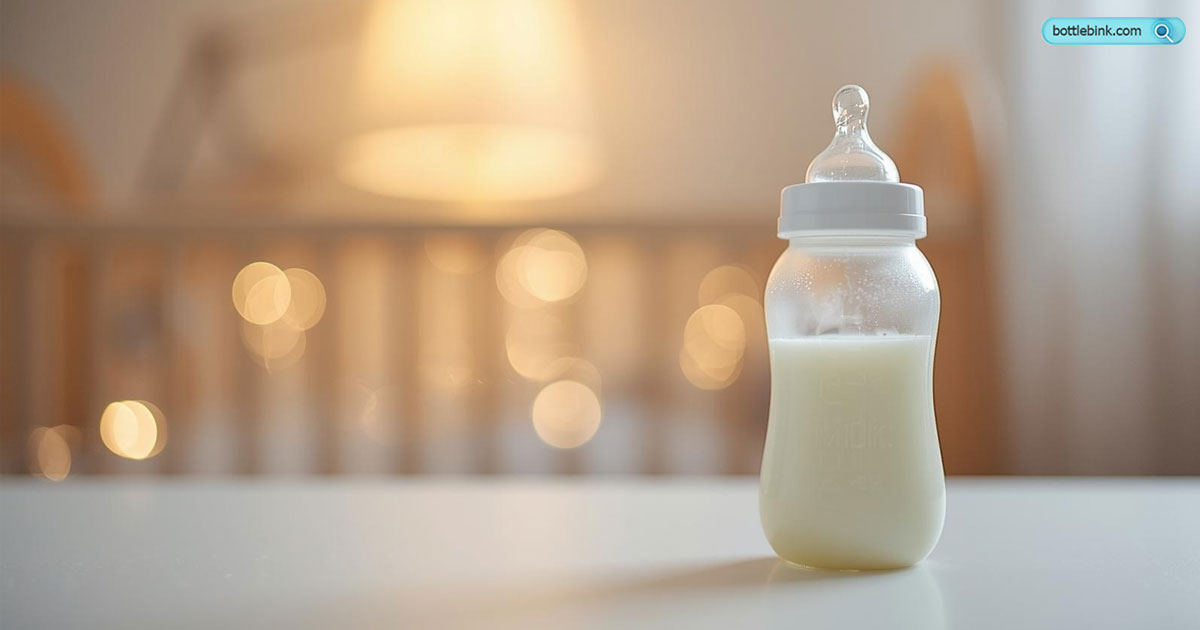
Signs Baby Is Getting Enough
Knowing if your baby is getting enough milk is very important. It helps you feed the right amount and keep your baby healthy. Babies show clear signs when they are satisfied and well-fed. Watch for these signs closely. They tell you a lot about your baby’s needs.
Monitoring Hunger Cues
Babies use simple ways to show hunger. They might suck on their hands or lips. Crying is often a last sign of hunger. Early signals include rooting or turning their head. These signs help you feed before your baby gets upset. Feeding at the right time keeps your baby calm.
Tracking Weight Gain
Regular weight checks are key to see growth. Healthy babies gain weight steadily each week. Your doctor will track your baby’s weight during visits. Good weight gain means your baby gets enough milk. Slow or no weight gain needs attention and help.
Common Feeding Challenges
Feeding a baby is a delicate task filled with small challenges. Parents often worry about giving the right amount of milk. Too much or too little can cause problems. Understanding common feeding challenges helps parents care for their baby better.
Overfeeding Risks
Giving a baby too many bottles can cause overfeeding. This may lead to stomach discomfort and spit-up. Overfeeding can also cause rapid weight gain. Babies might feel full but still want to suck for comfort. Watch for signs like fussiness or vomiting after feeding. Feed slowly and let the baby stop when full.
Underfeeding Concerns
Not giving enough milk can make a baby hungry and upset. Underfeeding may slow down growth and development. Babies who are underfed often cry more and sleep less. Look for signs such as fewer wet diapers or lack of weight gain. Make sure to offer enough bottles based on the baby’s age and needs.
Tips For Bottle Feeding Success
Successful bottle feeding takes careful steps. It helps babies get the right amount of milk safely. It also builds a good habit for feeding times. Follow these tips for a smooth feeding experience.
Preparing Bottles Safely
Always wash your hands before handling bottles. Clean bottles and nipples with hot, soapy water. Rinse them well to remove all soap. Use boiled water to prepare formula or warm milk. Check the temperature before feeding to avoid burns. Store prepared bottles in the fridge if not used right away. Throw away leftover milk after feeding to keep baby safe.
Establishing A Feeding Routine
Feed your baby at regular times each day. Watch for signs of hunger like sucking on hands. Avoid forcing the baby to finish every bottle. Allow breaks during feeding to burp the baby. Keep the feeding area calm and quiet. Use this routine to help your baby feel secure and relaxed. Consistency helps baby learn when to expect feeding.
Frequently Asked Questions
How Many Bottles Does A Newborn Need Daily?
Newborns usually need 8 to 12 bottles a day, feeding every 2 to 3 hours.
How Many Ounces Should Each Baby Bottle Contain?
Each bottle typically contains 2 to 3 ounces for newborns, increasing as they grow.
How Often Should I Feed My Baby With A Bottle?
Feed your baby every 2 to 3 hours during the first few weeks.
Can Feeding Frequency Change As Baby Grows?
Yes, feeding frequency usually decreases as the baby grows and drinks more per feeding.
How To Know If My Baby Is Getting Enough Milk?
Look for steady weight gain and 6 or more wet diapers daily.
Should Bottle Quantity Differ For Breastfed Babies?
Breastfed babies may need fewer bottles, depending on breastfeeding frequency and milk intake.
When Can I Reduce The Number Of Bottles Per Day?
Around 2 to 3 months, babies often need fewer bottles as their intake per feeding increases.
What Signs Show My Baby Is Hungry Or Full?
Crying, sucking on hands, or restlessness show hunger; turning away means they are full.
Conclusion
Babies need different bottle amounts each day. Their age and hunger guide the number. Watch your baby’s cues closely. Feeding needs can change fast. Always stay flexible and patient. Keep bottles clean and ready. Trust your instincts as a parent.
Feeding time builds a strong bond. Every baby is unique, so adjust as needed. This approach helps keep your baby happy and healthy.



